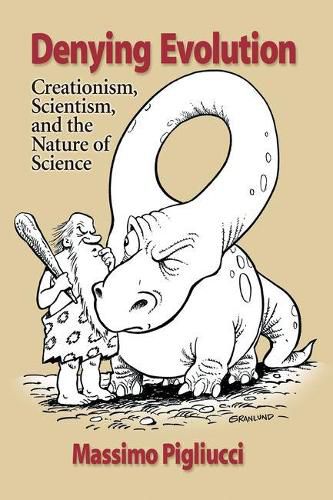Readings Newsletter
Become a Readings Member to make your shopping experience even easier.
Sign in or sign up for free!
You’re not far away from qualifying for FREE standard shipping within Australia
You’ve qualified for FREE standard shipping within Australia
The cart is loading…






Denying Evolution aims at taking a fresh look at the evolution-creation controversy. It presents a truly balanced treatment, not in the sense of treating creationism as a legitimate scientific theory (it demonstrably is not), but in the sense of dividing the blame for the controversy equally between creationists and scientists–the former for subscribing to various forms of anti-intellectualism, the latter for discounting science education and presenting science as scientism to the public and the media. The central part of the book focuses on a series of creationist fallacies (aimed at showing errors of thought, not at deriding) and of mistakes by scientists and science educators. The last part of the book discusses long-term solutions to the problem, from better science teaching at all levels to the necessity of widespread understanding of how the brain works and why people have difficulties with critical thinking.
$9.00 standard shipping within Australia
FREE standard shipping within Australia for orders over $100.00
Express & International shipping calculated at checkout
Denying Evolution aims at taking a fresh look at the evolution-creation controversy. It presents a truly balanced treatment, not in the sense of treating creationism as a legitimate scientific theory (it demonstrably is not), but in the sense of dividing the blame for the controversy equally between creationists and scientists–the former for subscribing to various forms of anti-intellectualism, the latter for discounting science education and presenting science as scientism to the public and the media. The central part of the book focuses on a series of creationist fallacies (aimed at showing errors of thought, not at deriding) and of mistakes by scientists and science educators. The last part of the book discusses long-term solutions to the problem, from better science teaching at all levels to the necessity of widespread understanding of how the brain works and why people have difficulties with critical thinking.